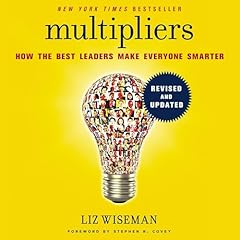
Your Brain at Work
Strategies for Overcoming Distraction, Regaining Focus, and Working Smarter All Day Long
No se pudo agregar al carrito
Add to Cart failed.
Error al Agregar a Lista de Deseos.
Error al eliminar de la lista de deseos.
Error al añadir a tu biblioteca
Error al seguir el podcast
Error al dejar de seguir el podcast
 Exclusivo para miembros Prime: ¿Nuevo en Audible? Obtén 2 audiolibros gratis con tu prueba.
Exclusivo para miembros Prime: ¿Nuevo en Audible? Obtén 2 audiolibros gratis con tu prueba.Compra ahora por $24.29
-
Narrado por:
-
Bob Walter
-
De:
-
David Rock
Meet Emily and Paul: The parents of two young children, Emily is the newly promoted VP of marketing at a large corporation while Paul works from home or from clients' offices as an independent IT consultant. Their lives, like all of ours, are filled with a bewildering blizzard of emails, phone calls, yet more emails, meetings, projects, proposals, and plans. Just staying ahead of the storm has become a seemingly insurmountable task.
In this book, we travel inside Emily and Paul's brains as they attempt to sort the vast quantities of information they're presented with, figure out how to prioritize it, organize it and act on it. Fortunately for Emily and Paul, they're in good hands: David Rock knows how the brain works-and more specifically, how it works in a work setting. Rock shows how it's possible for Emily and Paul, and thus the reader, not only to survive in today's overwhelming work environment but succeed in it-and still feel energized and accomplished at the end of the day.
YOUR BRAIN AT WORK explores issues such as:
- why our brains feel so taxed, and how to maximize our mental resources
- why it's so hard to focus, and how to better manage distractions
- how to maximize your chance of finding insights that can solve seemingly insurmountable problems
- how to keep your cool in any situation, so that you can make the best decisions possible
- how to collaborate more effectively with others
- why providing feedback is so difficult, and how to make it easier
- how to be more effective at changing other people's behavior
Los oyentes también disfrutaron:




















Las personas que vieron esto también vieron:





Would you recommend this book to a friend? Why or why not?
There is good material in here, but I struggled to follow it through. The format is interesting, but the "wrong" way of doing things can be seperated from the "right" way by so much time that other than wincing, you feel you have not learnt much.That said, there is still a wealth of knowledge in here. I read a lot of similar books, and still learnt a lot. Not just in how I could function better, but how I could counsel others who were struggling with aspects of their work.
What three words best describe Bob Walter’s performance?
Acceptable.What did you take away from Your Brain at Work that you can apply to your work?
Check your frame of mind before starting a task, particularly a delicate one.Any additional comments?
Another reviewer compared this book to "Spark." There is almost no overlap in the material. You can benefit from both.Solid material, presentation a little wanting.
Se ha producido un error. Vuelve a intentarlo dentro de unos minutos.
A must read for everyone!
Se ha producido un error. Vuelve a intentarlo dentro de unos minutos.
Would you consider the audio edition of Your Brain at Work to be better than the print version?
The audio was almost meditative at times. I found it most useful when starting the work day to listen to a section and apply the techniques throughout my day and week when applicable.What was the most interesting aspect of this story? The least interesting?
The nuances of insight in how we react, what we say and don't say, and at what time is one of the finer points of having successful or failing interactions with the ever interesting human condition. I found that the detailed approach to examples and case scenarios while at times pedantic and plodding, help simplify complex interaction issues that everyone goes through. The backing science behind it all just helped bolster the understanding of how it all ties together to make or break your everyday communications wherever you go...Have you listened to any of Bob Walter’s other performances before? How does this one compare?
noExcellent nuances of communication
Se ha producido un error. Vuelve a intentarlo dentro de unos minutos.
"Brain at work" is a different kind of beast. It does not introduce a fact or a scientific research unless it serves the purpose of the book, and the purpose of the book is to make a reader better at work, parenting, leisure, and pretty much any aspect of life. It's filled with practical ideas and techniques. No matter who you are, a busy executive, an individual contributor or a stay-at-home mom, you will find this book applicable, insightful, and practical.
This is one of few books that I am going to re-read at least once and maybe I'll make a habit to re-read it every couple of years.
Everybody will get something useful from this book
Se ha producido un error. Vuelve a intentarlo dentro de unos minutos.
great book
Se ha producido un error. Vuelve a intentarlo dentro de unos minutos.


